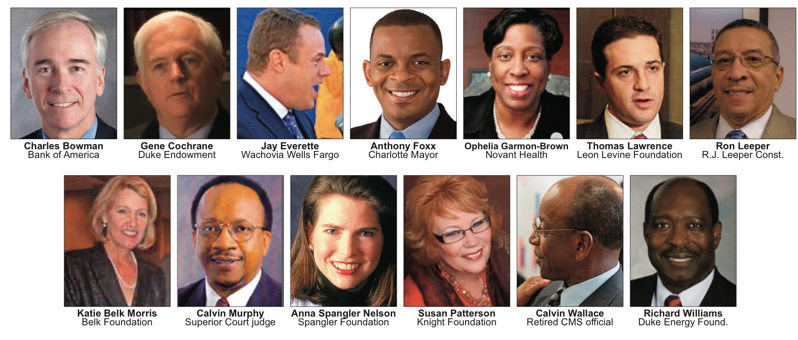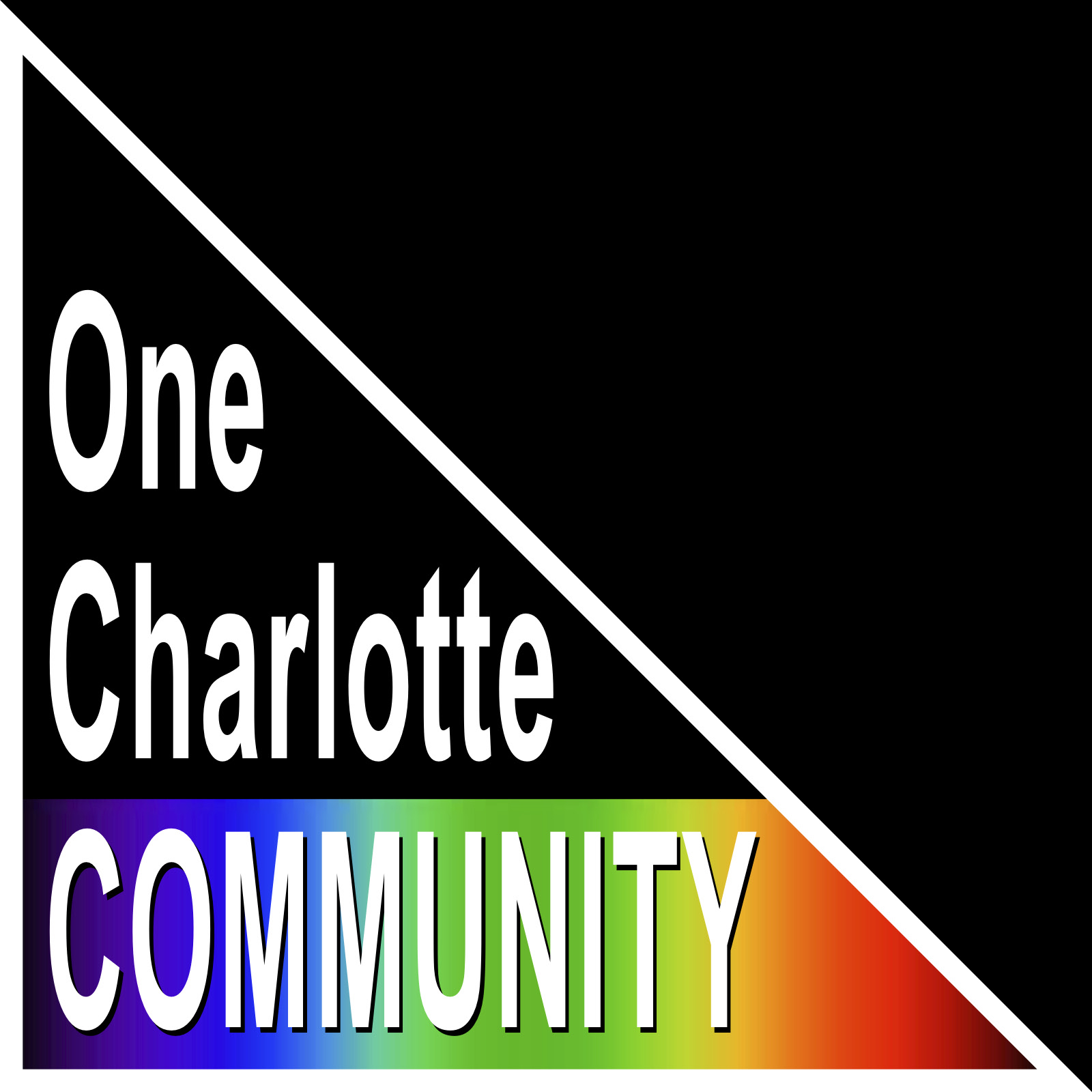
Sept. 1, 2010
The Foundation For the Carolinas Wednesday launched a “CMS Investment Study Group.” Members of the panel are shown above. Their charge: “Make recommendations about the best way for private funders to assist and support Charlotte-Mecklenburg Schools in achieving goals tied to student performance and equity.”
This project has immense potential for mischief. The study group was put together by movers and shakers, and is populated by movers and shakers. The members are mostly money people, not educators. They will meet in private. Their decisions about how to suggest that they and other movers and shakers spend their money are not subject to citizen review. And who knows what their definition of “equity” is, or how they will be persuaded to view what it will take to improve student performance.
And no matter how many hundreds of thousands of dollars they spend on consultants in the next months, they stand at grave risk of getting bogged down in the detritus of education policy and in the procedures of a state-mandated school system that responds to very different stimuli and is held accountable on a totally different regulatory basis.
So my hope is that the study group steers clear of the details and instead sends a very different message on achievement and equity than we’ve been getting from movers and shakers for more than 20 years.
Promise CMS $1.2 billion over the next 10 years ?–if the school board and CMS staff deliver within five years a school system in which every school is a place where every school board member and every CMS administrator and every member of this study panel would gladly send their child or grandchild each morning for a quality education.
Responses
J.M. Aberman, Oct. 16, 2010
The panel chosen is not going to be in touch with the education process. They will not figure out what needs to be changed to make the schools work.
We need a very different approach to how we educate. Treating the challenge of education as primarily an economic issue will assure that we suffer huge amounts more in social costs as the children who don’t get educated become teens and adults.
